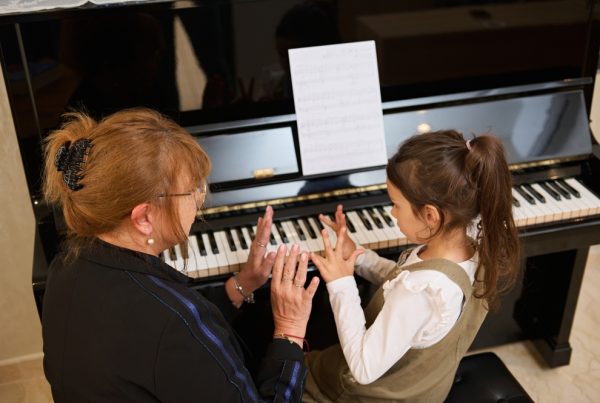Utah families value music, and more parents than ever want their children to learn the piano in Utah without sacrificing schoolwork, sports, or family time. This guide explains how Piano Teachers that Drive to You make lessons effortless, why the Volz Piano Method for kids keeps young learners motivated, and how science confirms the cognitive benefits of piano lessons for kids. You’ll discover formats—from in-home piano lessons Utah wide to county-specific options like mobile piano lessons for kids in Utah County, Utah—plus pricing, practice tips, and answers to common questions.
Table of Contents
- Why Utah Is the Perfect Place for Kids to Learn Piano ➤
- Inside the Volz Piano Method for Kids ➤
- How In-Home & Mobile Piano Lessons Work ➤
- County-by-County Lesson Options ➤
- The Science: Benefits & Brain Gains ➤
- Parental Support & Practice Hacks ➤
- Choosing Piano Teachers That Drive to You ➤
- Real-World Success Stories ➤
- FAQs ➤
Why Utah Is the Perfect Place for Kids to Learn Piano
From Salt Lake City’s Temple Square concerts to Provo’s indie-music scene, Utah’s cultural fabric is musical. Families seeking kids piano lessons Utah appreciate local recitals, scholarships, and the supportive Utah Music Teachers Association. The state’s focus on arts education ensures plentiful rehearsal venues and community concerts, motivating children to perform.
Parents also prefer children’s piano lessons Utah delivered at home. When a certified instructor arrives after school, young players transition smoothly from homework to music without lengthy commutes.
Inside the Volz Piano Method for Kids
The Philosophy
The Volz Piano Method for kids blends reading, ear training, and composition so that every child masters core literacy while exploring creativity. Each unit ends with a short composition project—perfect for show-and-tell at school.
Child-Focused Curriculum
This child-focused piano curriculum Utah emphasizes incremental goals. For example, beginners learn middle-C orientation through color-coded patterns, then graduate to two-hand pieces by week eight.
Why It Works
Gamified badges and parent-facing progress charts keep motivation high. Siblings can even earn “practice-buddy” points when they help each other.
How In-Home & Mobile Piano Lessons Work
In-Home Basics
With in-home piano lessons Utah, instructors arrive equipped with rhythm instruments, flashcards, and sometimes a digital keyboard for duets. The result: a familiar environment where young pianists focus better.
Mobile Convenience
Families in Draper or Orem save 30–40 minutes per session thanks to mobile piano lessons Utah. According to parent surveys, that reclaimed time often becomes extra practice or family dinner.
Private Instruction
For children who benefit from tailored pacing, private piano lessons for kids in Utah allow instructors to adjust tempo, teaching style, and repertoire on the fly.
County-by-County Lesson Options
Salt Lake County
In-home piano lessons for kids in Salt Lake County, Utah often occur right after school, taking advantage of peak energy. Local festivals like the Sandy Piano Day give students performance goals.
Utah County
Mobile piano lessons for kids in Utah County, Utah thrive thanks to a growing tech-hub population that favors flexible extracurriculars.
Salt Lake City
Private piano instruction for children in Salt Lake City, Utah includes masterclasses at local universities and access to all-Steinway concert halls.
The Science: Benefits & Brain Gains
Cognitive Development
Peer-reviewed studies show the cognitive benefits of piano lessons for kids, from improved executive function to better language discrimination. A PNAS study found that piano practice helps children distinguish consonant sounds, fostering reading readiness.
Academic Advantages
Long-term music education correlates with higher math and verbal scores, according to a Frontiers in Neuroscience paper.
Emotional Intelligence
Researchers at NAfME link early music study to empathy, patience, and self-regulation—traits essential for classroom success.
Benefits of piano lessons for children extend to lifelong neural plasticity, protecting against cognitive decline later in life.
Parental Support & Practice Hacks
Create a Routine
Set a consistent time—perhaps right before dinner—for practice. Even 15 focused minutes daily accelerates progress for music education for young learners in Utah.
Use Tech Wisely
Metronome apps and backing tracks keep tempo engaging. For reluctant practicers, mini-lessons on YouTube Kids break concepts into bite-sized goals.
Celebrate Milestones
Sticker charts or short videos sent to grandparents reinforce achievements.
Choosing Piano Teachers That Drive to You
A great fit balances credentials and personality. Ask about UMTA membership, lesson-planning approach, and safety protocols. Families who select piano teachers that drive to your home in Utah also check background screenings and insurance.
Trial lessons help gauge rapport, ensuring Utah kids piano lessons at home with Volz Piano Method start on the right note.
Real-World Success Stories
Sophia, age seven, mastered “Für Elise” after 18 months of weekly lessons, placing first in her school talent show. Her parents credit a “zero-drive-time” schedule for consistent attendance. Twelve-year-old Mateo composed his first original piece—performed at a local charity gala—thanks to composition modules within the Volz curriculum.
FAQs
What is the best age to start kids piano lessons in Utah?
Many teachers recommend ages five to six, when fine-motor skills and attention spans support structured learning.
Do I need a real acoustic piano for in-home lessons?
An 88-key weighted digital piano works well for the first two years; upgrade as your child’s repertoire grows.
How long are typical lessons?
Beginners thrive with 30-minute sessions; intermediate students often shift to 45 minutes.
How do mobile piano lessons differ from studio lessons?
Mobile lessons happen on your own instrument, eliminate drive time, and allow siblings to observe quietly.
What if my child doesn’t practice?
Discuss goals with the teacher, try shorter practice bursts, and incorporate games like flashcard races to rebuild momentum.



